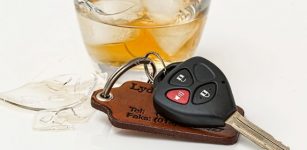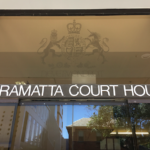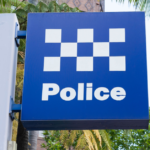Drivers Getting the Message about Drink Driving

NSW police have praised drivers for the marked improvement in road safety behaviour over the recent Easter holiday season.
Despite the strong police presence, the number of people detected for drink driving was significantly lower than last year. NSW police attended more than 340 incidents and two fatal accidents over the Easter period, while more than 300 people were charged with drink driving and 6400 speeding tickets were issued.
In terms of the Easter road toll, Australia has experienced its best Easter weekend in years, with driving fatalities drastically decreasing. In total, six people were killed as a result of accidents over Easter compared to double digit figures over the past five years. Previous Easter road tolls were 22 in 2015, 12 in 2014, 21 in 2013, 11 in 2012 and 16 in 2011.
Traffic and Highway Patrol Command’s Assistant Commissioner, John Hartley, said the vast majority of drivers conducted themselves responsibly over the Easter period, with a reduction in drink driving being of particular note.
“Although we conducted more than 360,000 breath tests compared to 244,000 last year there was a reduction in the number of motorists detected drink-driving,” he said. “This year 307 motorists were charged compared to 498 during Easter of 2015.”
Dangers of Drink Driving
Drink driving continues to be one of the main causes of road fatalities and injuries, responsible for 30 percent of road fatalities across Australia.
The effects are also economic – in 2006, the cost of each fatal crash was estimated at $2.6 million, while the cost of each hospitalisation crash was estimated at $266,000.
A major difficulty in recent years has been getting the road safety message through to a small number of repeat offenders.
Research shows between 20 and 30 percent of drink drivers re-offend, contributing disproportionately to road trauma and economic loss.
Targeting Re-offenders
This high-risk sub-group has been largely unresponsive to policy measures such as RBTs, double demerits, publicity campaigns and increased fines – which tend to reduce drink driving in the general population.
Most studies also indicate that ‘tough on crime’ strategies such as imprisonment are overly expensive, while having little or no impact on drink driving rates.
Driver education programs – such as ‘traffic offender programs’ – are an important step in reducing re-offending. These programs aim to expose drink drivers to information and images about the effects of dangerous driving behaviours, acting as a ‘wake up call’ to many. A long-term evaluation of the Sober Driver Program in NSW found that participants were 44 percent less likely to re-offend compared with a control group.
Rehabilitation programs are most effective when used in conjunction with measures that limit a driver’s access to vehicles, such as ignition locks under the ‘alcohol interlock program’.
These devices are wired to the ignition system of a vehicle and require the driver to blow a reading of zero before the motor starts.
Defending a Drink Driving Charge
It is important to note that there are several defences to drink driving charges, which we have covered in previous blogs. These include:
- Unsafe Reading- where a person’s blood alcohol concentration was likely to be lower at the time of driving than later when it was analysed at the police station,
- The two hour rule – which prevents police from breath testing a person more than 2 hours after that person last drove,
- The ‘home safely’ rule- This prevents police from compelling a driver to undergo a breath test on their own property, and
- Honest and reasonable mistake- a defence for people who ‘honestly and reasonably’ believed they were under the limit when driving, although this is difficult to prove.
Going to court for a traffic offence?
If you are going to court for a traffic offence, call or email Sydney Criminal Lawyers anytime to arrange a free first consultation with an experienced, specialist traffic lawyer who will accurately advise you of your options, the best way forward, and fight for the optimal outcome in your specific situation.






